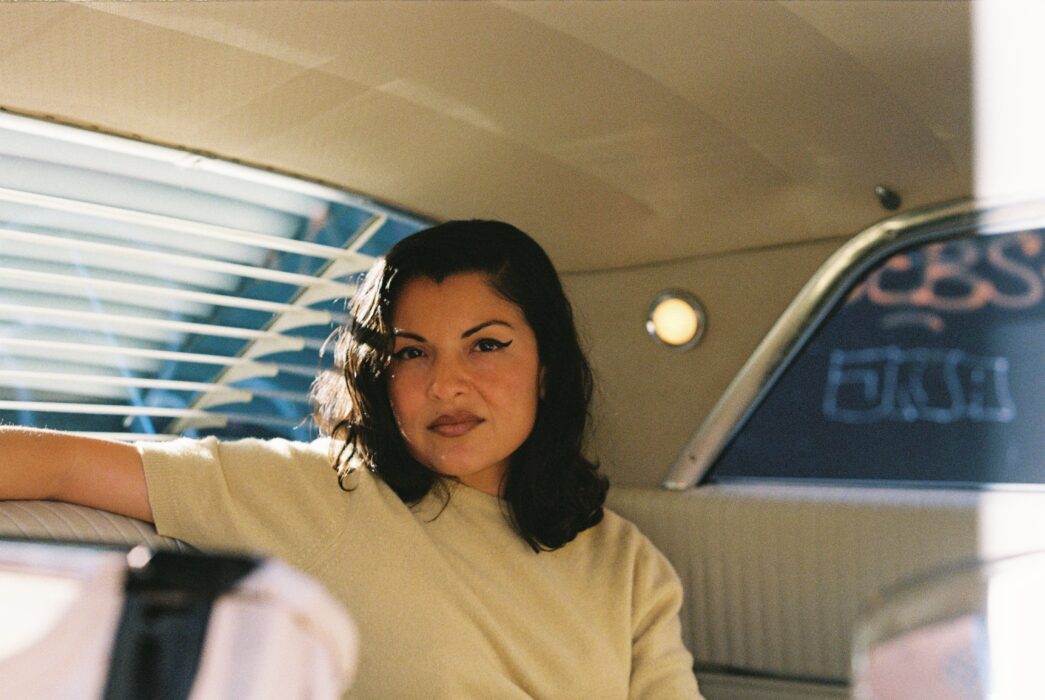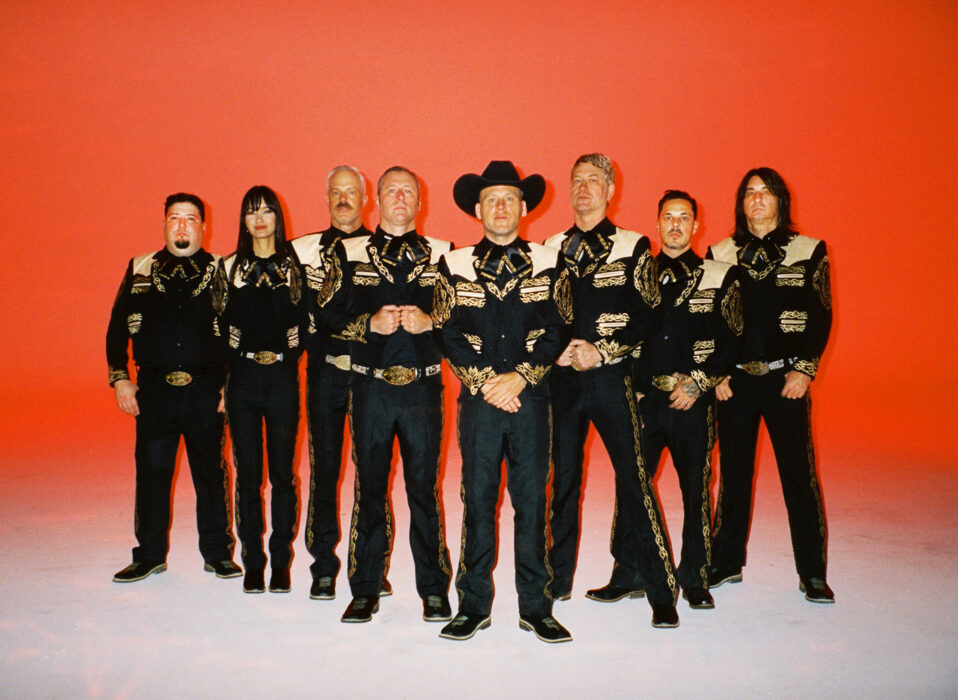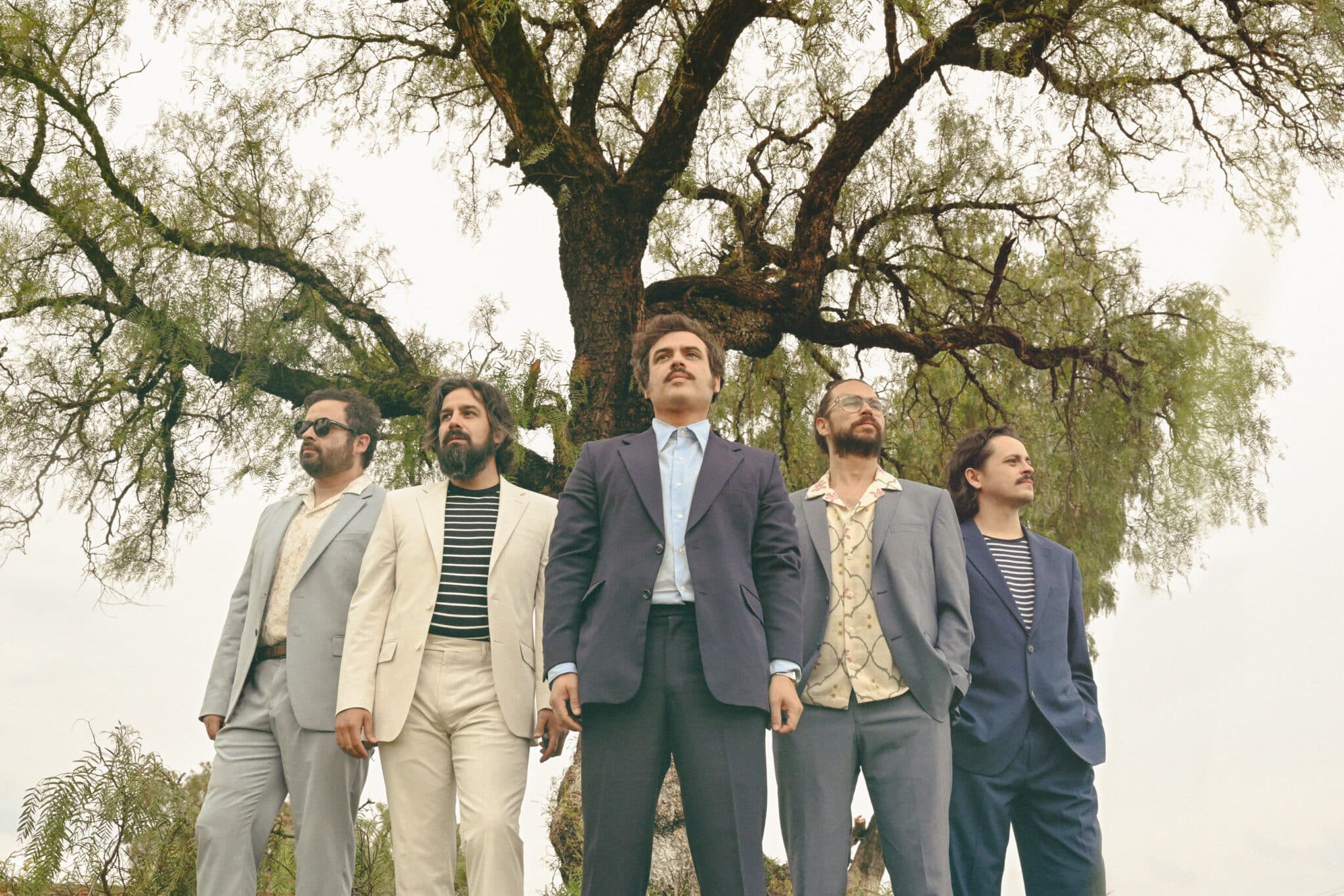
INTERVIEW: Indigenous Mexican-American Songstress Flores Dives Deep Into Her Politicized Life on the Border and Songwriting As Activism
The Indigenous Mexican-American singer-songwriter Flores is an artist to watch, rising through the music scene at rocket speed with her smooth R&B-influenced rhythms, soothing voice, and imagery-laden, poetic lyrics.
Growing up on the Tigua Indian Reservation in Texas, as she explains “with the border wall in [her] backyard,” Flores uses her music and lyrics to inspire and drive change for the BIPOC community. As a unique, much-needed voice that shouts to the rooftops about the ways people of color are subjugated, as well as the “whitewashing of history,” it’s no wonder Flores is seen as a breath of fresh air.
The R&B singer just released a double single today. The song “American Dirt” tells the story of Flores’ family seeking out the American Dream as cotton pickers, while “Sangre” delves into spoken word to delineate the ways people of color in the U.S. are oppressed by violence. mitú sat down with the singer to talk about her “therapeutic” songwriting process, her Latinidad, and her razor-sharp message.
As a Mexican-American who grew up in the Tigua Indian Reservation, how does your background and your roots play into your songwriting, music and the message you want to send out to the world?
I think growing up in the area that I did gave me an appreciation for where, as Mexican Americans, we came from. I am appreciative of the area I grew up in. It’s quite beautiful. My message is to bring light to the complexities of our identities and how we are not so simply explained with just a hyphen. I want to tell the authentic stories of our people.
We’d love to hear about your ties to activism. Your mother led the incredible campaign “Ni Una Más” connected to the women killed in Juarez. How do you use music as a vehicle to lead to much needed change?
My mother was an activist. Her job [was] working at Centro San Vicente, a non-profit organization for women who were seeking shelter. She found her voice after working amongst her people, hearing the stories of abducted young women who were being murdered in Ciudad Juarez. She pioneered the early beginnings of that movement on the U.S. side and began meeting with the activists and politicians annually on a march on the border into Juarez. It has definitely intimately influenced the importance of using our platforms to speak truths about our life, to reflect the times we are living in and uphold women, who in our culture are extremely vulnerable.
Let’s talk about your musical influences. Your songs are smooth, tinged with R&B, and create a dreamscape we just want to get lost in. What artists did you listen to growing up?
I listened to a lot of classic Mexican singers like Vicente Fernández, Jorge Negrete, Chavela Vargas, Juan Gabriel, and also lots of Motown and jazz. It was definitely a cross-cultural household. As a preadolescent, I listened to alternative rock and artists like Frank Ocean and Lauryn Hill who really inspired me.
Your lyrics are deeply poetic, too. How do you incorporate poetry into your songs? And how do you use your personal experiences to write your lyrics?
I guess I would say that all music is poetry of some kind. Whether spoken or not, I read a lot of authors and poets myself. I love Maya Angelou, Angela Davis, Rupi Kaur to name a few authors who inspired me with their stories. The way they yield words is awe-inspiring. I always write from a personal space, so it’s a natural thing for me. My lyrics are cathartic and therapeutic for me to just work through things I’ve experienced.
Your career is skyrocketing and you just launched your gorgeous double single “American Dirt” and “Sangre.” Tell us about these songs and their significance. “Sangre” also incorporates spoken word — how did you get the idea to form the song that way?
“American Dirt” is the way I believe the system forces me to feel. You realize that no administration ever has time for us — Mexicans and South Americans — to reform stringent immigration policies rooted in racism and eugenics. I want to challenge notions of freedom and what that means in a system that subjugates BIPOC. “Sangre” is the follow up record that is a seething confession of the heaviness of daily injustice, especially having lived with the border wall in my backyard. I wrote it because I feel an obligation to express this truth.
This interview has been slightly condensed for clarity.




